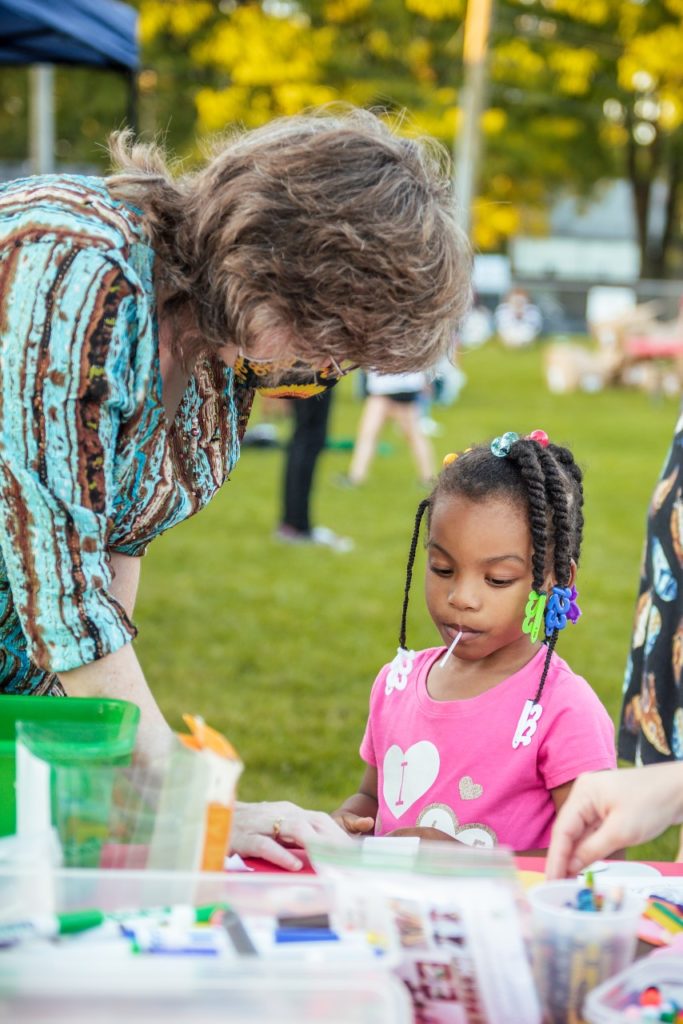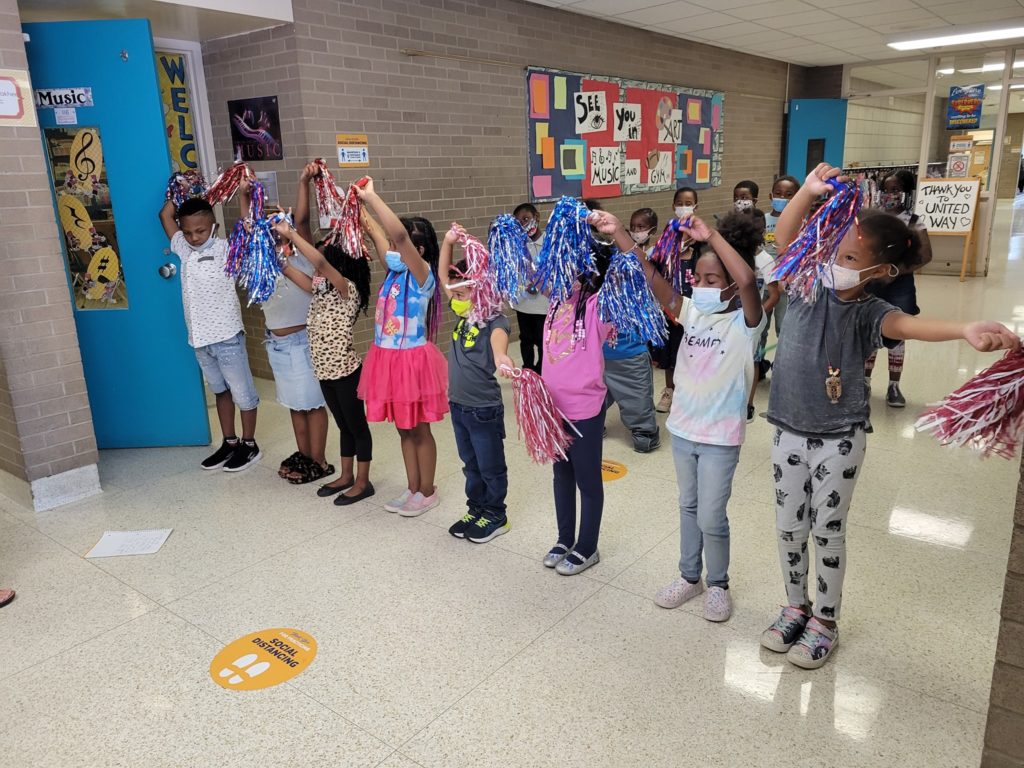What is a Community School?
A Community School is a neighborhood hub that students, families, staff and the surrounding community can take pride in. These groups all play a vital part in the success of the school, helping ensure that every student is successful. Community Schools offer academic support, social and emotional learning, and health and wellness resources. The result is a network of schools that provide family and community engagement in a safe and supportive climate.

Our Pillars
United Way for Southeastern Michigan’s Community Schools model focuses on:
Integrated Student Supports: Coordinated support programs to address out-of-school learning barriers for students and families. Mental and physical health services support student success.
Family and Community Engagement: Schools function as neighborhood hubs. There are educational opportunities for adults, and family members can share their stories and serve as equal partners in promoting student success. Promoting interaction among families, administration, and teachers helps families to be more involved in the decisions about their children’s education.
Expanded Learning Time and Opportunities: After-school, weekend, and summer programs provide academic instruction and individualized support. Enrichment activities emphasize real-world learning and community problem solving. Well-designed, expanded learning time and opportunities are aligned with the schools’ curriculum and learning goals.
Collaborative Leadership: Parents, students, teachers, principals, and community partners build a culture of professional learning, collective trust, and shared responsibility using strategies such as site-based leadership teams and teacher learning communities.
How It Works: P.R.I.D.E.
Healthy and thriving communities value P.R.I.D.E.
Preparedness
Students, parents, schools and communities leverage resources to prepare for positive developmental growth and success.
Resiliency
Families persistently empower change while maintaining positive relationships between the school district and the community.
Interconnectedness
Cross-functional relationships promote collaboration with education, business and philanthropic stakeholders that align students and families with basic needs, a community voice, capacity building resources and digital services.
Diversity
Communities are inclusive and allow a safe space for all community members to bring their unique perspectives.
Engagement
Stakeholders actively participate in the process of building up the community while providing guidance and tools to help the community achieve a favorable outcome.


Our School Districts
Our pilot program is in five schools across four districts in Southeastern Michigan. We collaborate with these districts to replicate the model and expand our reach across the region. Our initial focus is on communities with a disproportionate number of families who struggle to meet their basic needs, based on our most recent ALICE (Asset Limited, Income Constrained, Employed) Report.
Our school districts include:
- Hazel Park Schools
- Pontiac School District
- River Rouge School District
- Southfield Public Schools